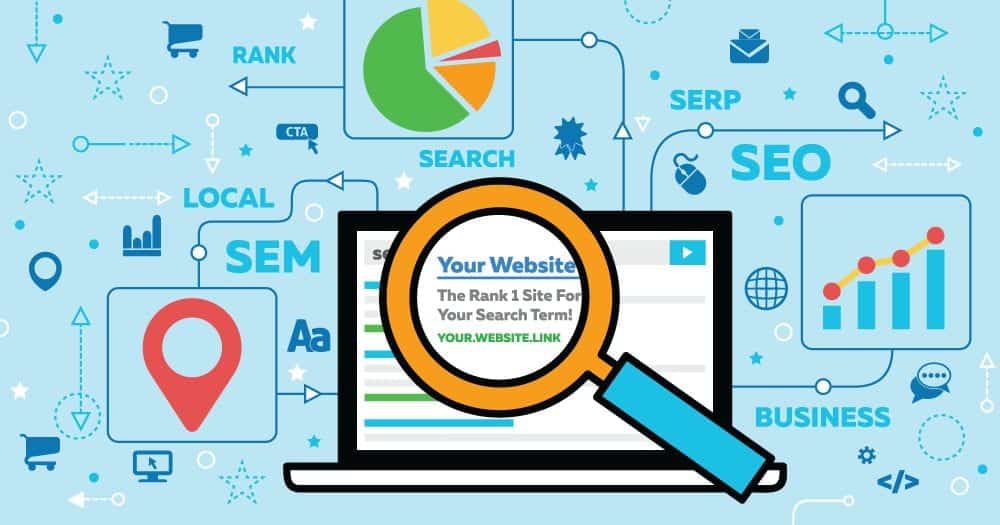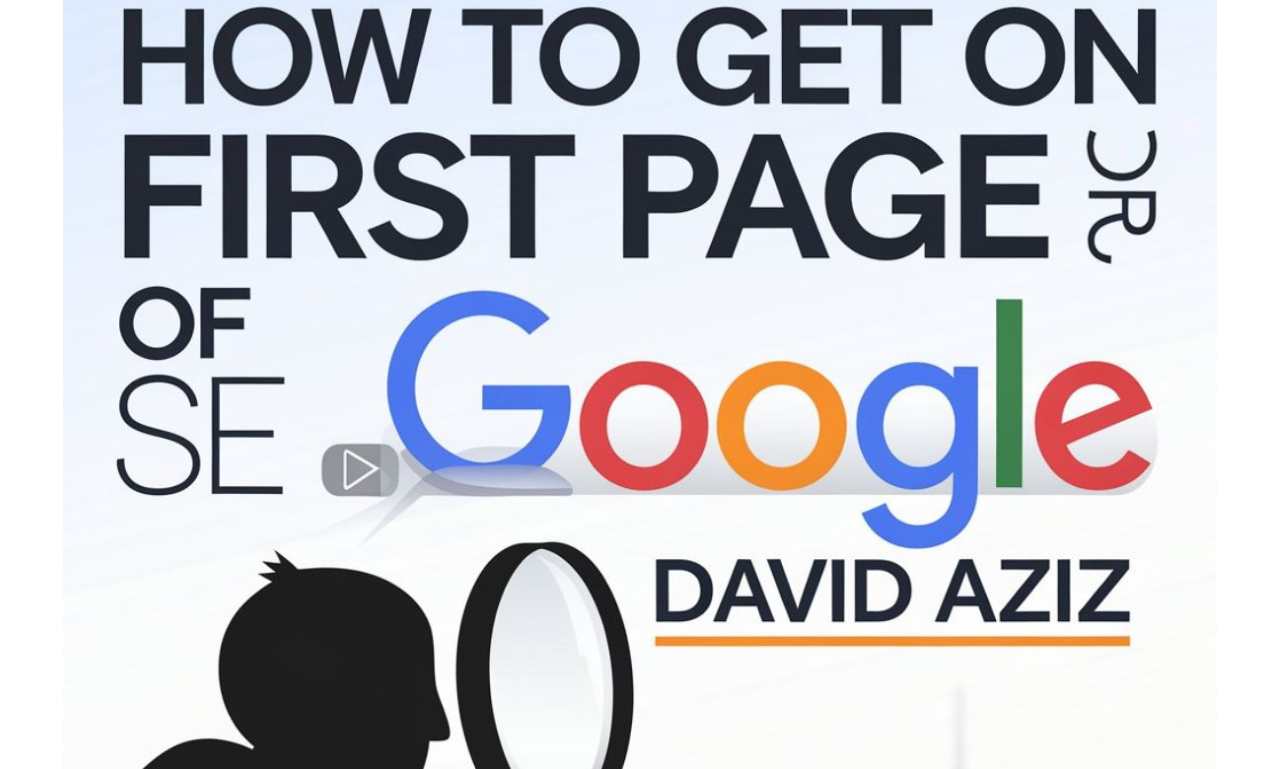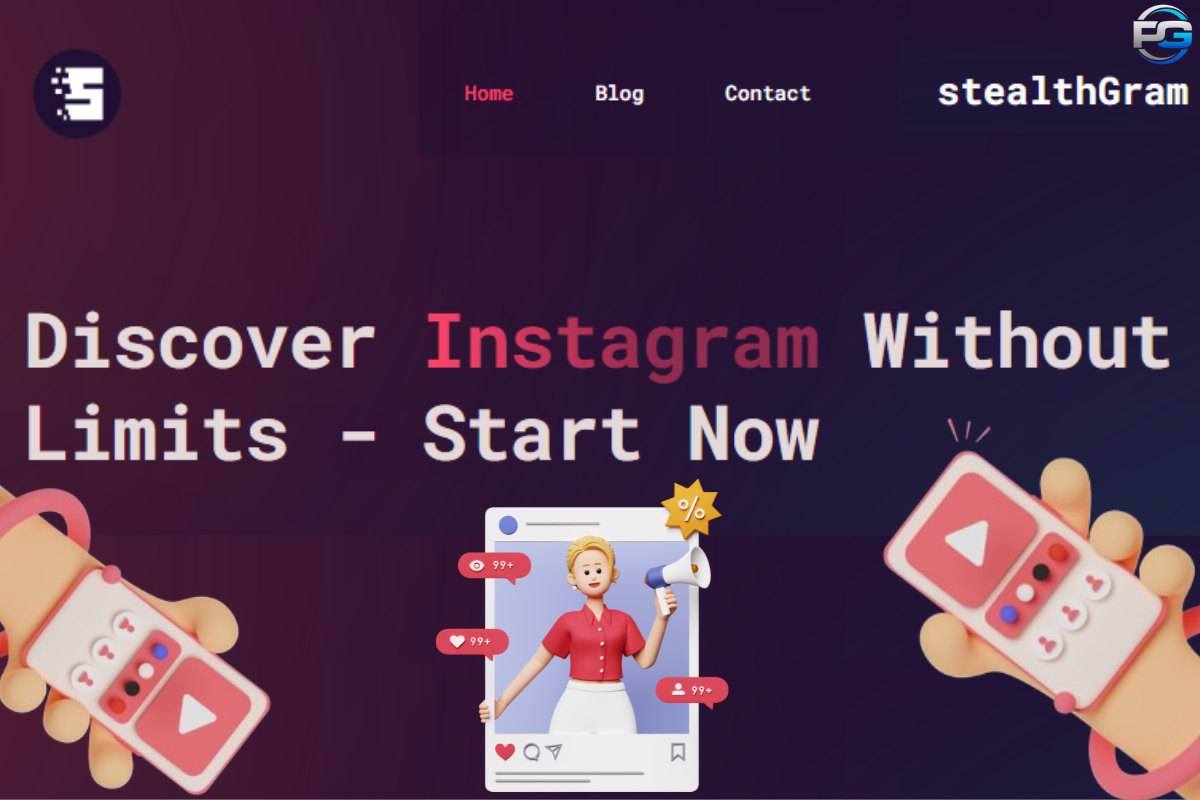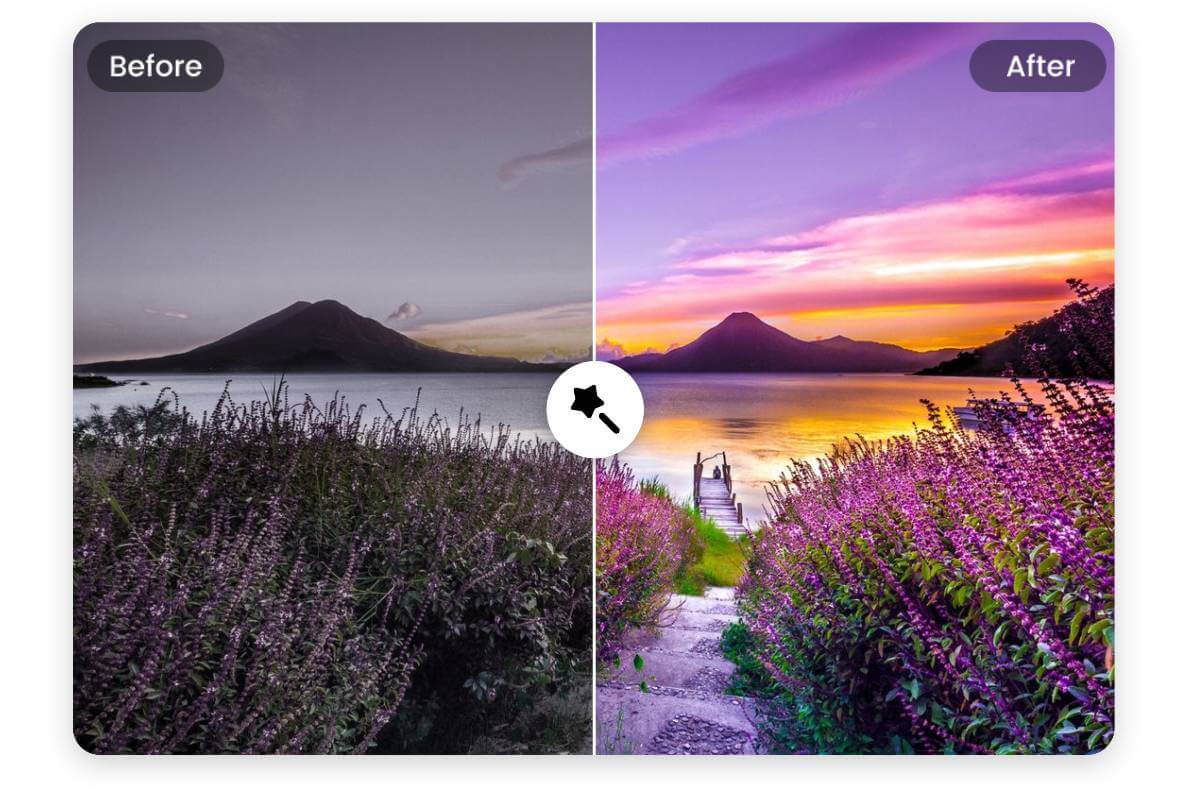Table of Contents
If you’re looking to dominate the search engine rankings, landing on the first page of Google is key. The goal of reaching this coveted spot can feel challenging, but with the right strategies, it’s entirely possible. In this guide, we will explore effective methods inspired by SEO expert David Aziz on how to get on the first page of Google search. These actionable steps will help you understand how to improve your website’s visibility and outrank your competition.
Understanding How Google Ranks Websites
Before diving into the specifics, it’s essential to understand how Google ranks websites. Google uses algorithms to evaluate billions of websites and rank them according to relevance and quality. The search engine’s goal is to deliver the most useful and reliable content to its users. This is why Google considers hundreds of factors, including content quality, site structure, keywords, and backlinks, to determine a website’s rank.
To get on the first page of Google search for “how to get on first page of google search david aziz,” you need to optimize your website for these factors.
Step 1: Optimize Your Website for SEO

SEO (Search Engine Optimization) is the backbone of getting your website noticed by Google. Here’s how you can optimize your site:
1. Use the Right Keywords
Keywords are the terms people type into Google when searching for something. To get on the first page of Google search for “how to get on first page of google search david aziz,” you need to include this keyword naturally throughout your content. Use it in titles, headers, and within the body of your text, but avoid overstuffing it. Google’s algorithms penalize sites that excessively use keywords in an unnatural way.
Use tools like Google Keyword Planner, Ahrefs, or SEMrush to find relevant keywords that have high search volume but low competition.
2. Create High-Quality, Valuable Content
Content is king when it comes to Google rankings. Google’s algorithms prioritize websites that deliver valuable, engaging, and informative content. When writing content for your website, ensure that it addresses the user’s intent and answers their questions thoroughly.
To rank for “how to get on first page of google search david aziz,” write blog posts, guides, or FAQs that provide comprehensive information about SEO strategies. Focus on quality over quantity—Google favors websites with well-researched, in-depth articles over thin content.
3. Optimize On-Page Elements
On-page SEO involves optimizing individual pages to rank higher on Google. This includes:
- Meta titles and descriptions: Include your primary keyword in the title tag and meta description. Keep them concise and appealing to encourage clicks.
- Headers (H1, H2, H3): Break your content into sections using header tags. This helps Google understand the structure of your page and makes it easier for users to read.
- Alt text for images: Use descriptive alt text for images on your page, incorporating relevant keywords where appropriate. This helps with Google’s image search.
- Internal linking: Link to other relevant pages within your website to help users navigate your site and keep them engaged.
Step 2: Build High-Quality Backlinks

Backlinks, or inbound links from other websites, are one of the most important ranking factors for Google. A site that has many high-quality backlinks is seen as more credible and trustworthy by Google’s algorithms. Here’s how you can build strong backlinks:
1. Guest Blogging
One effective way to earn backlinks is by guest blogging on reputable websites. Reach out to blogs in your niche and offer to write a guest post. In return, you’ll often get the opportunity to include a link back to your site. Make sure that the sites you target are reputable and have a strong domain authority.
2. Create Shareable Content
Content that is informative, entertaining, or controversial is more likely to be shared and linked back to. To get on the first page of Google search for “how to get on first page of google search david aziz,” create infographics, videos, and blog posts that provide unique insights into SEO and digital marketing. When your content gets shared on social media or linked to by other sites, it signals to Google that your website is valuable.
3. Reach Out for Link Building
Don’t be afraid to directly ask for backlinks. Reach out to influencers, bloggers, and website owners in your industry and request a backlink to your content. When reaching out, explain how linking to your page will provide value to their audience.
Step 3: Improve Your Website’s User Experience (UX)

Google’s algorithms also consider user experience when ranking sites. If your site is difficult to navigate or slow to load, users will leave quickly, increasing your bounce rate. A high bounce rate can negatively impact your ranking.
1. Mobile Optimization
More than half of all web traffic comes from mobile devices. If your website isn’t optimized for mobile, you could be missing out on a huge chunk of potential visitors. Make sure your site is responsive, meaning it adjusts to different screen sizes and works well on both desktops and mobile devices.
2. Increase Site Speed
A slow website frustrates users, causing them to leave and search elsewhere. To improve your chances of getting on the first page of Google, ensure that your site loads quickly. Use tools like Google PageSpeed Insights to test your site’s speed and find ways to optimize it. Compress images, reduce redirects, and minimize JavaScript to help speed up your site.
3. Improve Site Navigation
A well-structured, easy-to-navigate website will keep users on your site longer. Organize your content logically, use clear call-to-action buttons, and make sure important pages are easy to find. The longer users stay on your site, the better it will reflect in Google’s ranking algorithm.
Step 4: Utilize Local SEO
If your goal is to target a local audience, make sure you optimize for local SEO. This involves:
- Google My Business: Set up and optimize your Google My Business profile. Include accurate business information, operating hours, and a link to your website.
- Local Keywords: Use location-based keywords in your content. For example, if you are targeting SEO services in a particular area, include the city or region in your keyword strategy.
- Reviews: Encourage satisfied customers to leave positive reviews on your Google My Business page. Good reviews can improve your local rankings.
Step 5: Leverage Social Media
Although Google doesn’t directly use social media signals for ranking, having an active presence on social platforms can still benefit your SEO. Social media platforms can help you drive traffic to your website, increase brand awareness, and encourage shares and backlinks.
Post links to your content on Facebook, Twitter, LinkedIn, and Instagram to expand your reach. When people engage with and share your content, it boosts your site’s visibility.
Step 6: Monitor Your Progress
SEO is not a one-time effort—it requires ongoing maintenance and optimization. Use tools like Google Analytics and Google Search Console to track your progress. Regularly monitor your site’s traffic, rankings, and bounce rate to identify areas for improvement.
Keep an eye on your competition as well. If they start outranking you, analyze what they are doing differently and adjust your strategy accordingly.
Conclusion
Getting on the first page of Google search for a competitive keyword like “how to get on first page of google search david aziz” takes time, effort, and strategy. By optimizing your website for SEO, creating high-quality content, building backlinks, and improving user experience, you can improve your chances of ranking at the top. Remember, SEO is a long-term game, so be patient and stay consistent with your efforts.
By following these tips and learning from SEO experts like David Aziz, you’ll be well on your way to securing that coveted spot on Google’s first page.
Here are 10 frequently asked questions (FAQs) related to the article “How to Get on the First Page of Google Search: David Aziz’s Guide”:
- What is the most important factor for getting on the first page of Google?
- The most important factor is optimizing your website for SEO, which includes using the right keywords, creating high-quality content, and building backlinks. These factors help Google determine your site’s relevance and authority.
- How long does it take to rank on the first page of Google?
- It varies depending on the competition for your chosen keyword and the quality of your SEO efforts. Typically, it can take anywhere from a few weeks to several months to see significant improvements in rankings.
- What role do keywords play in getting on the first page of Google?
- Keywords are essential as they tell Google what your content is about. Using relevant and strategically placed keywords helps Google rank your site for specific search queries.
- How can backlinks improve my chances of ranking on the first page?
- Backlinks from high-authority sites act as endorsements for your content. The more quality backlinks you have, the more credible your site appears to Google, improving your chances of ranking higher.
- Is content length important for ranking on Google?
- Yes, longer, high-quality content often ranks better because it tends to be more comprehensive and valuable to readers. However, content quality is more important than simply aiming for word count.
- Can I get on the first page of Google without backlinks?
- While it’s possible, backlinks significantly boost your chances of ranking. Backlinks help Google see your site as a trusted source, which can improve your ranking.
- How important is mobile optimization for Google rankings?
- Mobile optimization is crucial because Google now uses mobile-first indexing, meaning it primarily uses the mobile version of your site for ranking. A mobile-friendly site can improve your SEO and user experience.
- What tools can help track my website’s SEO progress?
- Tools like Google Analytics, Google Search Console, Ahrefs, and SEMrush are excellent for tracking traffic, keyword rankings, and overall SEO performance.
- How can I improve my website’s user experience for better SEO?
- Focus on improving site speed, making your site mobile-friendly, ensuring easy navigation, and delivering valuable, engaging content to keep users on your site longer.
- Does social media activity affect my Google rankings?
- While social media doesn’t directly influence Google rankings, it can help drive traffic to your site and increase brand awareness, which can indirectly improve your SEO efforts through more visibility and engagement.






